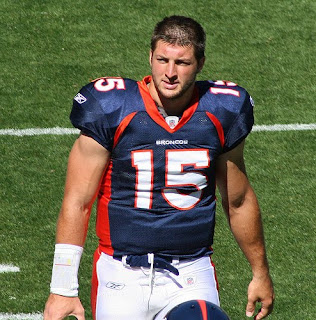
As anyone who's read this blog for half a minute surely realizes, Kyrie and I are really not into the bigotry thing. I don't care who it's coming from. I don't give people passes on bigotry for any of the following reasons (or any other reasons):
1. I know them.
2. I like/love them.
3. I am related to them.
4. They're smart, professional, good at their jobs, famous, whatever.
5. They have friends/relatives belonging to the group against which they are bigoted.
6. They themselves belong to the group against which they are bigoted.
That last point is called "internalized [homophobia/racism/misogyny/whatever]." It happens all the time. Therefore, having gay friends or being gay is not an excuse to be homophobic.
Sidenote: If you know me IRL, and you've ever said that I'm your lesbian friend in order to seem cool for having a lesbian friend or to make yourself sound like less of a bigot, we're not really friends.
People who think or say things like visibly queer people are just trying to get attention really need to check themselves. For starters, they're trying to police other peoples' self-expression. There are a lot of gay people out there who want us to all just be more heteronormative because they think it will make things easier for them in some way. Like, if we can be just like straight people, everything will be fine. We won't piss off straight people, and we need them, or so this argument goes. We'll get to have marriage or whatever the fuck.
Break to remind you that I don't really care about gay marriage beyond "queer people should have access to institutions that exist." It isn't the end of the struggs. Aaaaaaand: fuck needing straight people to like us, and avoiding pissing them off. I'll piss off straight people all day and night if it will make things safer for one queer kid. That's why I posted the picture of my tattoo again.
My silences have not protected me. Your silence will not protect you.That's Audre Lorde. Again. Always.
Some of us don't want to be just like straight people. Also also, not all straight people are the same [really!]. Plenty of straight people aren't into the normativity project either.
The idea that we should all be more normative and less visibly queer is super gross because it's upholding the idea that we should be a certain way, and that way is rooted in cis privilege and heteronormativity. My friend Kristen and I are having this conversation about good bodies and bad bodies, or heterocapitalistic bodies/rebellious bodies. She mentioned an old livejournal that basically criticized people for looking too dykey. Whatever that means. As she said, in her brilliant way with words [this was an IM conversation, you should read K's blog for other really interesting stuff]:
it was like you could be femme or androdynous but you had to be really skinny and well dressed, and people would get called like butch and bulldyke and stuff. which is homophobia, right, that you draw a line around skinny femme girls and skinny justin beiber girls and use homophobic language/policing to keep everyone else out. the same way LGB organizations want to keep out people who are trans and sex workers (good gay/bad queer) (bodies that conform to heterocap logic/bodies that rebel)
This idea that queer people should be less visibly queer is a way of telling us to get in line with the heteropatriarchy and I'm not having it. It also reifies the idea that there is a gender binary that exists, and men should look/act/be a certain way and women should look/act/be a certain way and there is a limited range of expression within that. You already know I think that's bullshit.
BUT there's also this whole other thing, which is that without visibly queer people - those of us who read super gay wherever we go or who work our asses off to raise queer visibility in all kinds of ways or who are "professional gays" or all of those things or lots of other things - without us? You don't get a movement, you don't get any progress at all. Conforming and limited- or in-visibility can work for some people, I guess, but Stonewall didn't happen because of people who tried to be under the radar. The people who have the most to lose are often the ones who suffer the most from heteronormativity/patriarchy/capitalism. If you think that that's just a way of "getting attention," you've got another think coming.
And all of this shit is stuff I've heard from gay people. There are gay people out there who want many of us to stop "trying to get attention" by "flaunting our sexual orientation." These people are not my people, I don't care if they're gay. They're homophobic. And they need to learn their history and open their eyes because their homophobia really hurts, and the people it hurts are often the people out there doing the most and/or taking the most shit because of the homophobia that these attitudes hold up.
And if any of them ever tell me I don't look gay again, I'm going to flip a table over and leave.







 You guys, I am preeetty good at financial stuff. I am also perpetually bursting with financial advice and dying for an outlet. And since 'tis the season for it, I thought I'd start posting some of it.
You guys, I am preeetty good at financial stuff. I am also perpetually bursting with financial advice and dying for an outlet. And since 'tis the season for it, I thought I'd start posting some of it.





